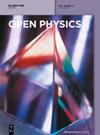Bayesian estimation of equipment reliability with normal-type life distribution based on multiple batch tests
IF 1.8
4区 物理与天体物理
Q2 PHYSICS, MULTIDISCIPLINARY
引用次数: 0
Abstract
The test of new equipment is usually carried out in multiple batches according to the task schedule and test results. Constrained by the test environment, cost, and other factors, the amount of reliability test data in each batch is relatively limited, which brings difficulties to the accurate equipment reliability estimation work. For the reliability simulation tests conducted before each batch tests, it is particularly important to make full use of each batch tests information and simulation tests information to estimate the reliability of the equipment for small sample tests. This study takes the common normal-type life distribution equipment as the research object, and selects the normal-inverse gamma distribution as the equipment life parameters prior distribution based on the Bayesian method. Combined with the system contribution, the fusion weights of each batch tests information are determined and all the batch tests information is fused. Finally, the estimation of equipment reliability based on multiple batch tests is completed. The research results show that this method can integrate the information of each batch test and simulation test, overcome the problem of insufficient information of single batch tests, and provide an effective analytical tool for equipment reliability estimation.基于多批试验的正态寿命分布设备可靠性贝叶斯估算
新设备的试验通常根据任务计划和试验结果分多批进行。受试验环境、成本等因素的制约,每批次的可靠性试验数据量相对有限,这给设备可靠性的精确估算工作带来了困难。对于每批次试验前进行的可靠性模拟试验,充分利用每批次试验信息和模拟试验信息对设备进行小样本试验可靠性估算显得尤为重要。本研究以常见的正态型寿命分布设备为研究对象,基于贝叶斯方法选取正态-反γ分布作为设备寿命参数的先验分布。结合系统贡献,确定各批次试验信息的融合权重,并对所有批次试验信息进行融合。最后,完成基于多批次试验的设备可靠性估算。研究结果表明,该方法能够融合各批次试验和模拟试验的信息,克服了单批次试验信息不足的问题,为设备可靠性估算提供了有效的分析工具。
本文章由计算机程序翻译,如有差异,请以英文原文为准。
求助全文
约1分钟内获得全文
求助全文
来源期刊

Open Physics
PHYSICS, MULTIDISCIPLINARY-
CiteScore
3.20
自引率
5.30%
发文量
82
审稿时长
18 weeks
期刊介绍:
Open Physics is a peer-reviewed, open access, electronic journal devoted to the publication of fundamental research results in all fields of physics. The journal provides the readers with free, instant, and permanent access to all content worldwide; and the authors with extensive promotion of published articles, long-time preservation, language-correction services, no space constraints and immediate publication. Our standard policy requires each paper to be reviewed by at least two Referees and the peer-review process is single-blind.
 求助内容:
求助内容: 应助结果提醒方式:
应助结果提醒方式:


